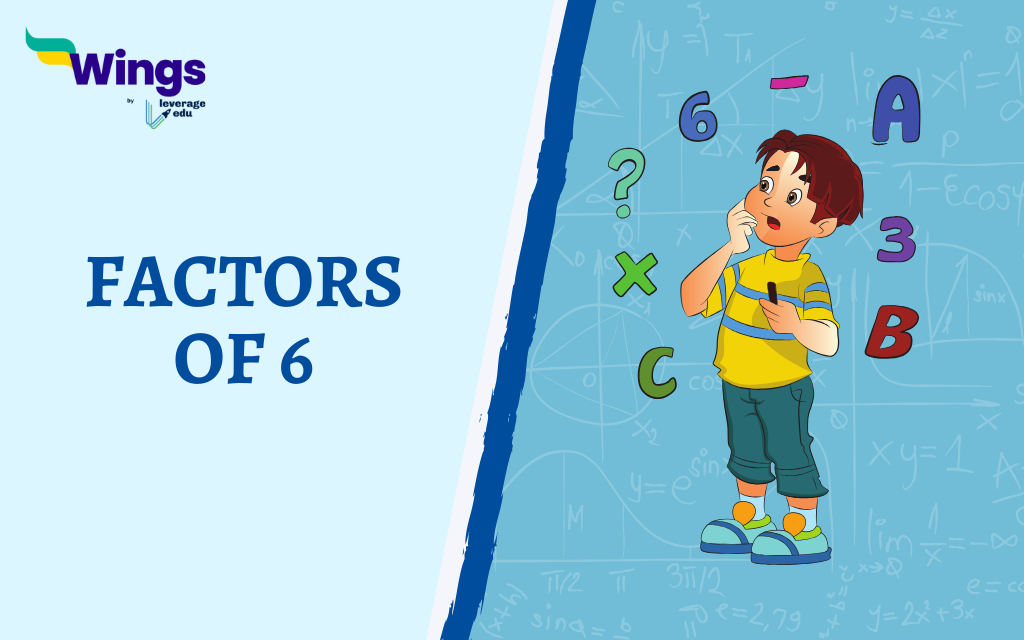Maths is fun as long as you enjoy learning all the concepts with understanding. So here, we have factors. Let’s start by taking the number 12. Now when we think of the factors of 12, we will have to start with the smallest number. For instance, 1, 2, 3, and so on. When we watch these numbers we will try to recall the table of these numbers. Now we know 12 times 1 is 12, 6 times 2 is 12, 4 times 3 is 12, and so on. We can now easily conclude that 1, 2, 3, 4, 6, and 12 are the factors of 12. Here we will talk about the factors of 6.
Also Read- Factors of 12: Definition, Prime Factorization, Factor Tree
Definition and Properties of Factors
The factor of any given number is the number that can be divided by the given number and the remainder could come to zero. The following are the properties of the factors.
- Every number can be broken down into a set of whole numbers that divide evenly into it, with no remainders. These whole numbers are called factors.
- The number of factors a number has is limited (not infinite). There’s a specific count for each number.
Also Read- 10 Properties of Determinants: Formulas and Examples
- No factor of a number can be larger than the number itself. Factors are always less than or equal to the number they divide.
- All numbers, except for 0 and 1, have at least two factors: 1 and itself.
- Finding factors involves checking for even division (using division) and multiplying smaller factors together (using multiplication).
Also Read- What are Co Prime Numbers?
Factors of 6 by Prime Factorization
Finding out the prime factors of 6 can be done in the following way.
The prime factors of a number are the special numbers you multiply together to get a given number. So, if we take the number 6 for example, we can find its prime factors by breaking it down into smaller parts. For 6, those prime factors are 2 and 3. That’s because if we multiply 2 and 3 together, we get 6. So, we can say that 6 equals 2 times 3. There’s no other way to break down 6 into prime numbers except using 2 and 3.
Also Read- Factors of 20
FAQ
Since 6 is an even number, all its multiples are in even numbers. 0, 6, 12, 18, 24, 30, 36, 42, 48, 54, 60, 66, 72, 78, 84, 90, 96
Dividing any number with 0 is not possible which is why 0 can’t be a factor of any number.
The factors of 8 are 1, 2, 4, and 8, other than that if we divide any number with 8, it always leaves a remainder.
Related Blogs
This is everything to know about the factors of 6. Wish to clear more concepts like this? Keep reading our blogs to learn more about the Basic Concepts of Maths!


 One app for all your study abroad needs
One app for all your study abroad needs












 60,000+ students trusted us with their dreams. Take the first step today!
60,000+ students trusted us with their dreams. Take the first step today!